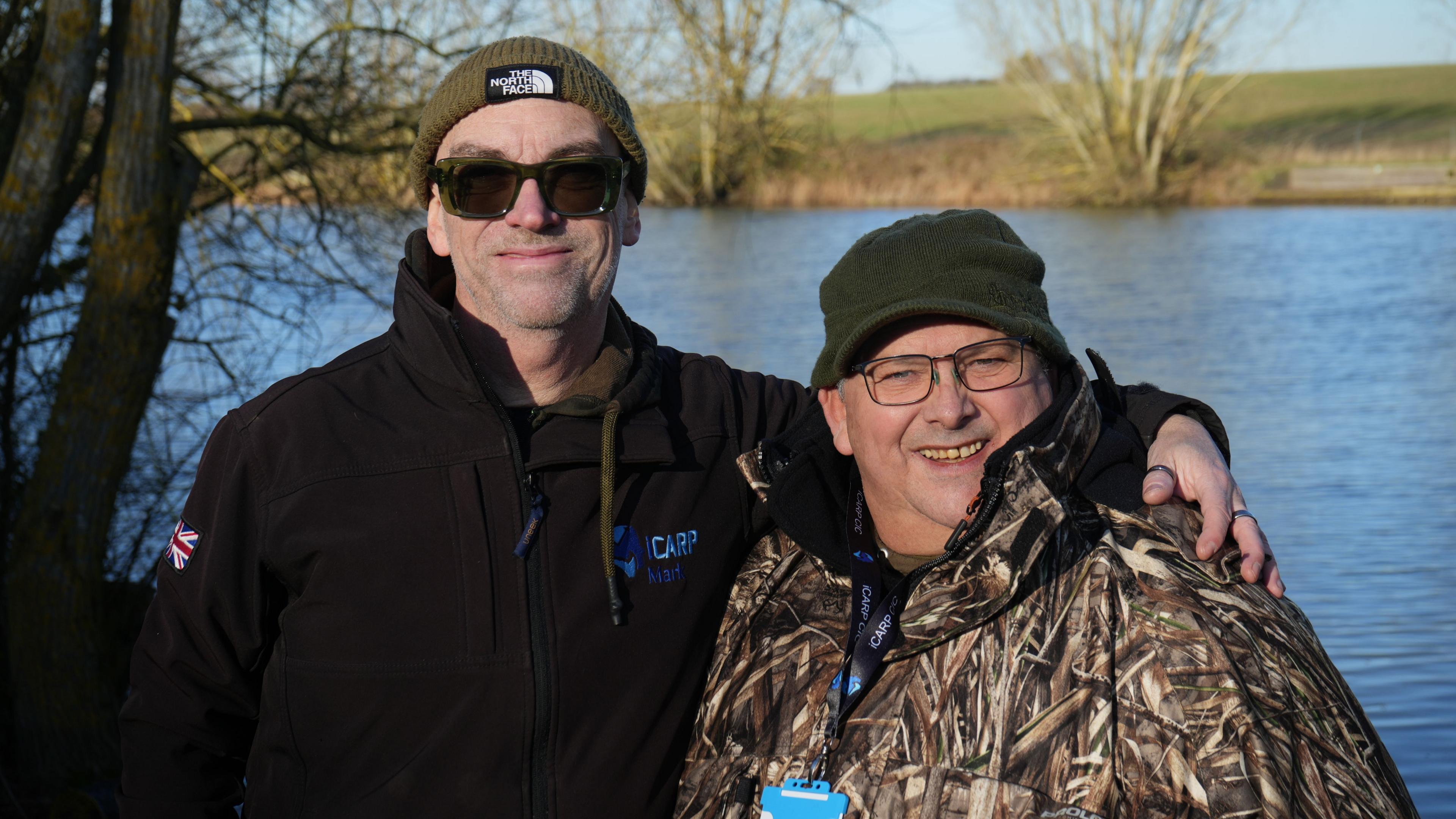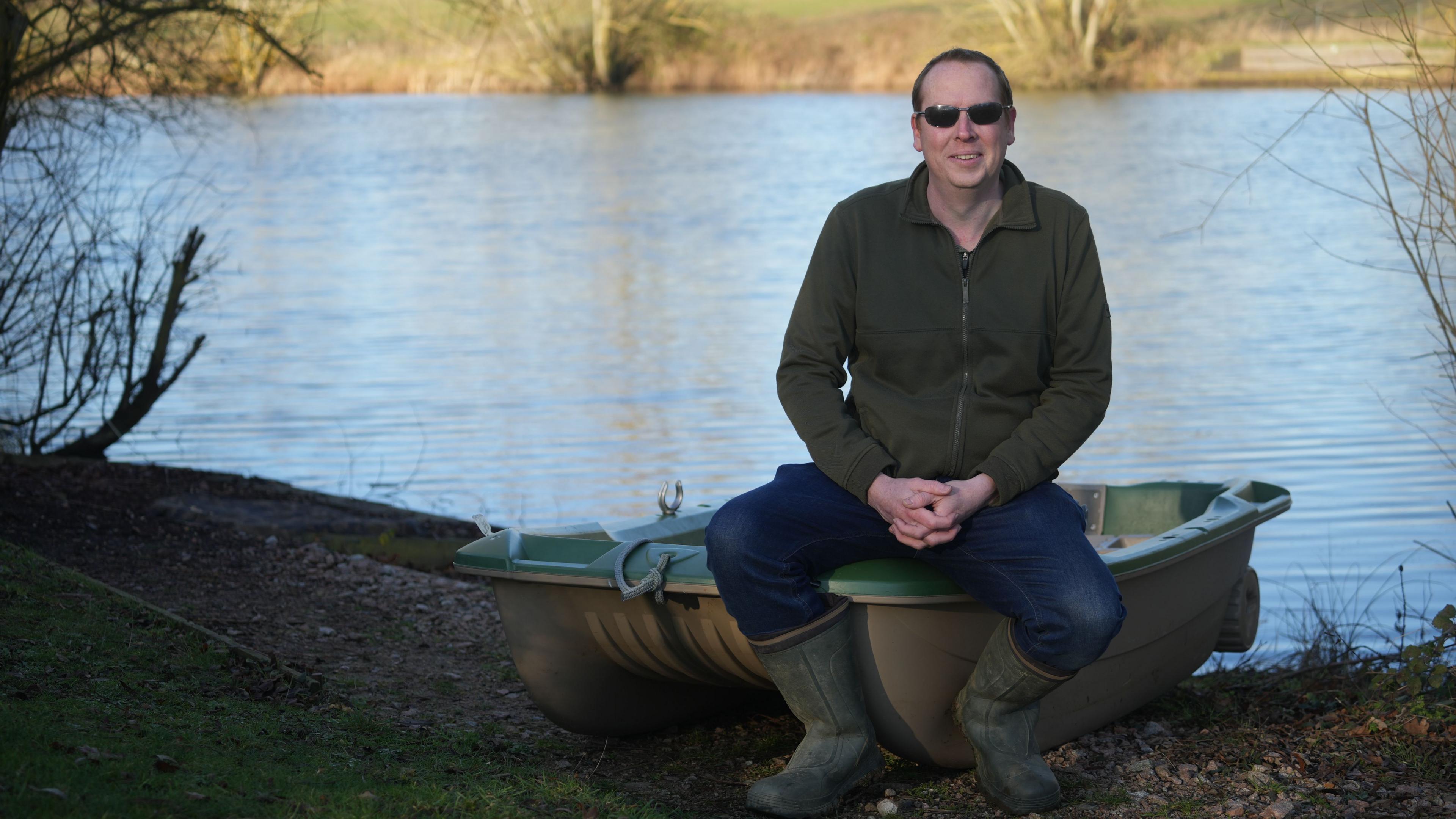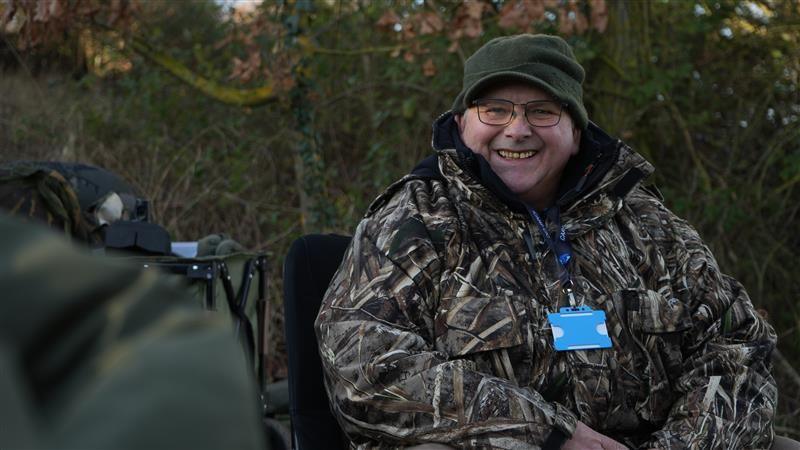Fishing mental health project findings 'positive'

ICARP say fishing could be used as "an option for social prescription"
- Published
A project that prescribes a course of fishing to people with mental health needs has had some "really positive results", a mental health trust has said.
Essex Partnership University NHS Foundation Trust (EPUT) created a tailored programme with Investigating Countryside and Angling Research Projects (ICARP).
A small number of patients benefited from the one-on-one service, with about 1,000 people benefiting from ICARP's wider services and programmes.
Robert Chandler, from EPUT, said "people's level of mental health challenges [have] reduced".
The programme, which was given funding of £19,200 by the North East Essex Health and Wellbeing Alliance, allows service users and their support workers to learn to fish with a coach, provided by ICARP.
"There's been evidence that people are making new connections in the communities, which is really important," said Mr Chandler.
"The aim is that if you can get people early and be able to provide the right support for them it will stop their mental health deteriorating."
A participant who is recovering from a traumatic brain injury said: "I like being outside fishing; I've always loved it and it gives you a chance just to relax - no stresses, forget about everything else. And it's just fabulous."
The wife of another participant said: "This has lifted his mood, and I believe it's done him a great deal of good.
"He's thrilled to bits because he's met people with similar problems, and he doesn't feel so isolated.
"He loves being out in the country, in the air, and with nature."

Robert Chandler, from Essex Partnership University Trust, said the project had shown some positive results
ICARP has been working with people suffering from trauma-related illnesses and their work is part of a study by the University of Essex.
Dr Mark Wheeler, ICARP's joint chief executive and clinical lead, said activities like fishing could be used as "an option for social prescription".
"We're not claiming this is a full cure for mental health conditions but we are saying that it will reduce those symptoms," he said.
"If we have people coming regularly we can monitor their risk and see if they're getting better or worse and it might be a nice option for a GP to have in their toolbox rather than just the psychotropic medication or formal therapy."
He said fishing could be offered to lessen stigma associated with traditional mental health treatments such as therapy.
Brian Haycock, 67, who served in the military between the ages of 16 and 60, said ICARP offered him "a place where I come and just be myself" following the death of his wife Gwen four and a half years ago.
"Coming down and sitting here just feels like a sense of belonging; it's a second family.
"I don't need to keep to myself - I can speak to people."

Military veteran Brian Haycock said the scheme had helped him to cope with the loss of his wife
Mr Haycock, who is now a coach for ICARP said helping other anglers had given him "a fantastic buzz".
"When I catch a fish, it's exhilarating. When I've sat with a guy who's a bit unsure and then they catch a fish and suddenly their demeanour changes straight away and their buzz is my buzz.
"Your mind switches on to what the carp is doing - you forget all the troubles in the world and you focus on those two rods and the lake."
'Largest recorded UK catfish' caught in Essex lake
- Published8 January
Research into GP-prescribed fishing to be expanded
- Published28 February 2024
University study to find if fishing can help PTSD
- Published4 July 2022
ICARP has been collecting evidence on the impacts angling have on people who have been referred to the service since last May and expects to publish its findings in 2028.
Get in touch
Do you have a story suggestion for Essex?
Follow Essex news on BBC Sounds, Facebook, external, Instagram, external and X, external.